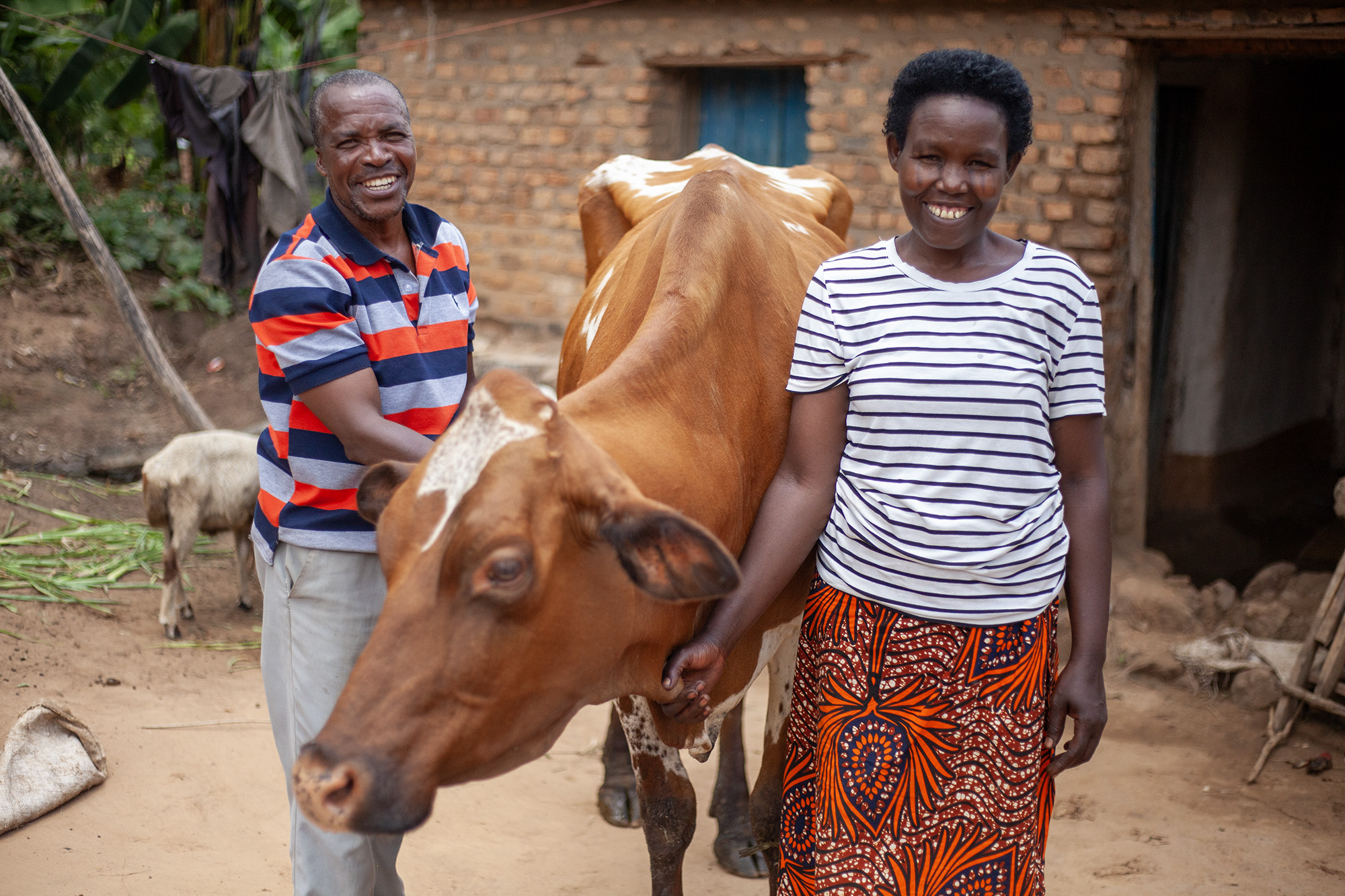
At CARE Rwanda, we believe that food security, access to clean water, and good nutrition are fundamental pillars of a thriving society. We are committed to supporting the Government of Rwanda’s vision to combat malnutrition, promote climate-resilient agriculture, and eradicate poverty, ultimately ensuring a future where all Rwandans have reliable access to nutritious food.
Our Strategic Approach to Sustainable Growth
Our work in this vital sector is deeply rooted in the CARE Rwanda Strategy 2021-2025. This strategy sets an ambitious goal: to empower at least 1.2 million Rwandans, predominantly women from low-income households, with access to and control over climate-resilient economic resources and opportunities, enabling them to lead decent and dignified lives.
A core component of this strategy is our focus on promoting agriculture and livestock as sustainable pathways to employment for a significant number of people, particularly youth and women. We recognize the immense potential of these sectors to not only ensure food security but also to generate livelihoods and foster economic growth.
Addressing Challenges and Fostering Inclusive Growth
Through various strategic partnerships, CARE is actively addressing the critical challenges faced by farmers who aspire to move beyond subsistence farming and contribute to job creation and national food security. These challenges commonly include:
Lack of access to land: A significant barrier for many, especially women.
Insufficient capital: Limiting investment in modern farming techniques and technologies.
Unpredictable climate patterns: Requiring adaptive strategies for resilient agriculture.
Limited access to modern farming techniques: Hindering productivity and efficiency.
These challenges disproportionately affect women, girls, and youth in general, perpetuating cycles of poverty and limiting their potential.
To address these, in collaboration with our partners, we are implementing innovative and practical solutions including:
Financial Inclusion: We forge partnerships with private sector actors, particularly financial institutions, to develop and facilitate access to specialized financial products for those with limited resources, enabling them to invest in their agricultural ventures.
Capacity Strengthening: We provide comprehensive training and capacity building to farmers, equipping them with sustainable farming practices, climate-smart agriculture techniques, and agribusiness management skills.
Promoting Equality for Women and Girls; and Land Rights: We actively advocate for and facilitate equitable access to and control over productive assets, including land, for women. This empowers women to maximize their agricultural output and secure their livelihoods.
Knowledge Transfer and Practical Skills Development: We establish agricultural demonstration plots (demo plots) that serve as hands-on learning centers, allowing farmers to acquire and apply practical skills in an experiential setting.
We are implementing several projects within this program area. These projects are being implemented in 11 districts.

Farmer Field Business School (FFBS): This model provides farmers with practical, hands-on training in both agricultural techniques and business management, enabling them to transition from subsistence farming to profitable agribusinesses.
Climate Vulnerability Capacity Analysis (CVCA): Through this analytical tool, we assess communities’ vulnerabilities to climate change and their existing capacities to adapt. This informs the development of targeted, climate-resilient agricultural interventions.
Journey for Transformation (JfT): This approach focuses on fostering equality for women and girls and power balance within households, empowering both men and women to make joint decisions that contribute to household well-being and economic empowerment.
Community Scorecard (CSC): This participatory tool empowers program participants to voice their concerns and priorities, fostering collective action and collaboration with local leaders to find sustainable solutions to community-specific challenges.
CARE is a global leader within a worldwide movement dedicated to ending poverty. We are known everywhere for our unshakeable commitment to the dignity of people.

90% of CARE USA’s expenses go to program
services.
CARE is a global leader within a worldwide movement dedicated to ending poverty. We are known everywhere for our unshakeable commitment to the dignity of people.

90% of CARE USA’s expenses go to program
services.